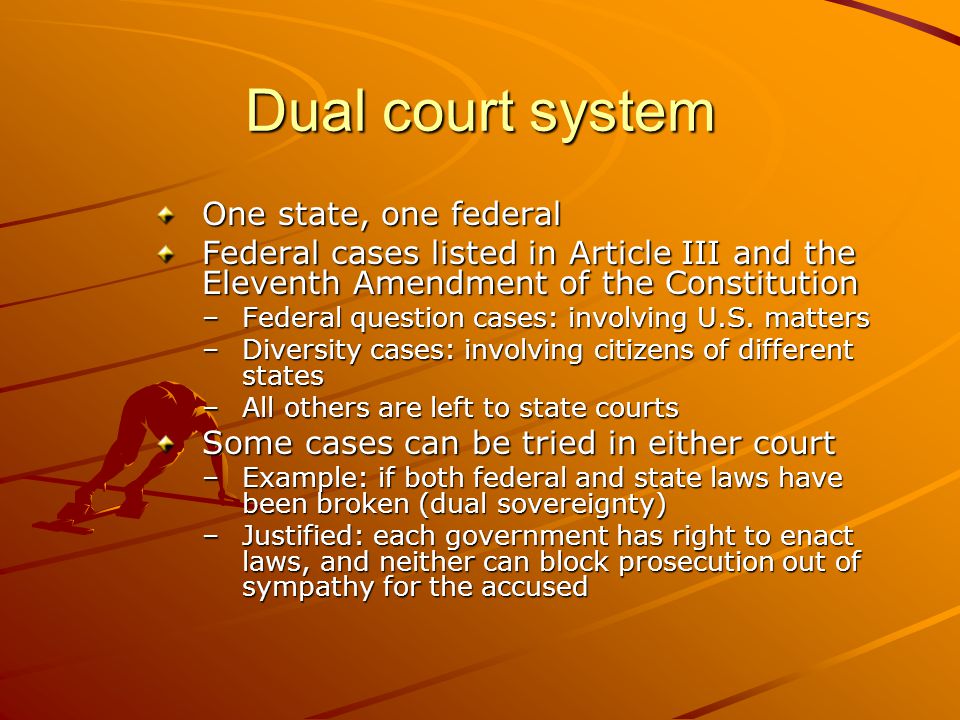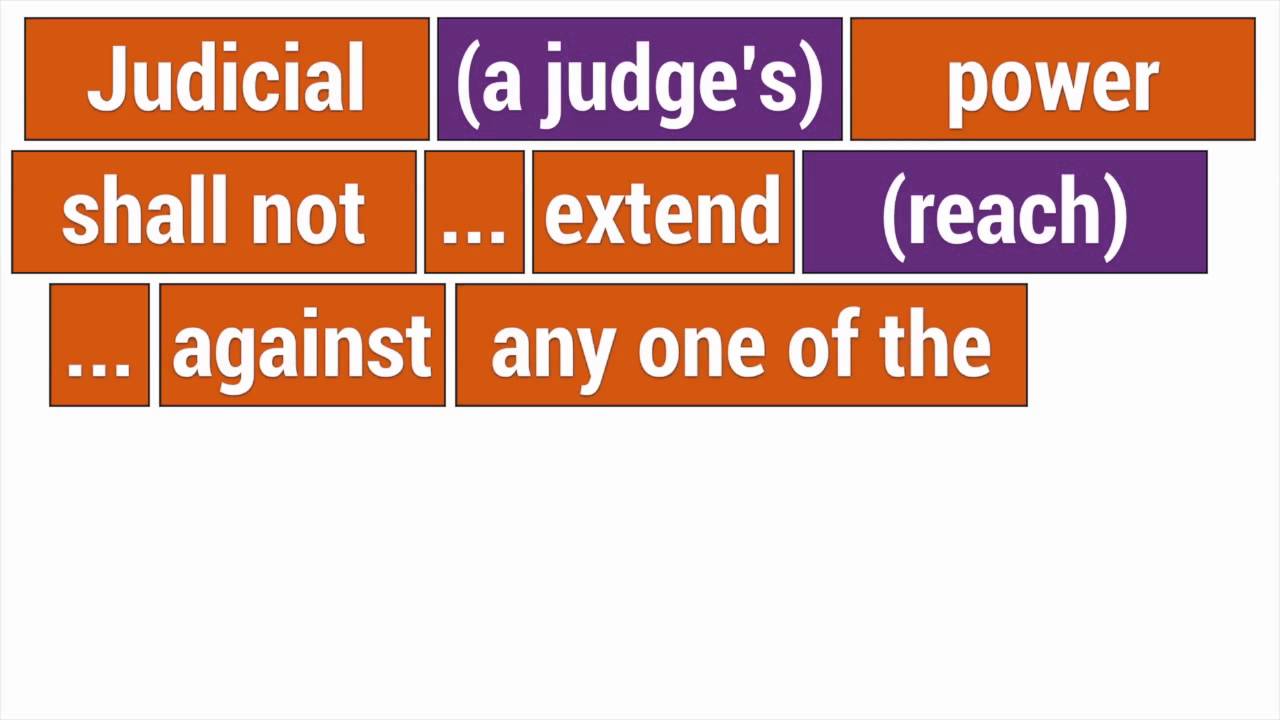Most people are unaware that “We the people” have 11th Amendment immunity!

11th Amendment Immunity
1.) The 11th Amendment under the US Constitution reads as follows: “The judicial power of the United States shall not be construed to extend to any suit in law or equity, commenced or prosecuted against one of the United States by citizens of another state, or by citizens or subjects of any foreign state.â€
2.) On December 9, 1945, International Organization Immunities Act relinquished every public office of the United States to the United Nations. This law makes all public officials foreign citizens, barring them from judicial power. All public officials are administrative agents of the US Corporation. They have no judicial power whatsoever.
3.) 22 CFR (Code of Federal Regulations) 92.12-92.31 FR Heading “Foreign Relationship†states that oath is required to take office.
4.) Title 8 USC 1481 states, once oath of office is taken citizenship is relinquished, thus the oath taker becomes a foreign entity, agency, or state. That means every public office is a foreign state, even all political subdivisions; i.e., every single court is considered a separate foreign entity.
5.) Title 22 USC, “Foreign Relations and Intercourseâ€, Chapter 11 identifies all public officials as foreign agents.
6.) All “judicial power” of the “inferior courts” comes from the Judiciary Act of 1789, as did the Attorney General position. “Judicial power” comes from Article III, Section 2 of the Constitution. The Eleventh Amendment removed all “judicial power” in law, equity, treaties, contract law, and the right of the State to bring suit against the People. The positions of Attorney General and Prosecutor, of both the United States and the several states, come under the Judicial Branch not the Executive branch of the government. All attorneys come under the Judicial Branch and are judicial officers under the Supreme Court, not under the Secretary of State as licensed professionals, which means they can only represent the Court and not the People or the State. The Eleventh Amendment removed all “judicial power” from the “inferior courts” and the prosecutor’s office as well as from all court officers in law, equity, and so forth.
7.) The Eleventh Amendment also makes a foreign state separation from the position of the Public Office positions to throw off the People. The People have Eleventh Amendment immunity, because there is no “JUDICIAL POWER” of the “inferior courts” and the People have Foreign Sovereign Immunity.
8.) The defendant/affiant/petitioner holds the inherent right of the 11th Amendment, which states in part: “The judicial power shall not be construed to extend to any suit in law or equity, commenced or prosecuted by a Foreign State.â€
9.) Municipal, county, or state court lacks jurisdiction to hear any case under the foreign state definitions, coming from the 11th Amendment under the US Constitution. This jurisdiction lies with the United States District Court under the Foreign Sovereign Immunities Act (FSIA) Statutes pursuant to 28 USC 1330.2
10.) The fact that public officials are not citizens, but rather, foreign citizens, all of the cases must be dismissed because the court lacked and lacks jurisdiction to enforce judicial power. This court is an administrative court and not a criminal court. In other words, no judicial power makes this court an administrative court. Also, this following act proves that this court is an administrative agency: The Administrative Procedures Act, Title 5 – Government Organization and Employees Administrative Procedures Act part I – the agencies generally chapter 5 subchapter ii – administrative procedure º551. Definitions. For the purpose of this subchapter – * (1) ”agency” means each authority of the Government of the United States, whether or not it is within or subject to review by another agency.
Additionally, “Jurisdiction can be challenged at any time.” Basso v. Utah Power & Light Co. 495 F 2d 906, 910. And the court cannot ignore lack of jurisdiction. “There is no discretion to ignore lack of jurisdiction.” Joyce v. U.S. 474 2D 215.
A judgment rendered by a court without personal jurisdiction over the defendant is void. It is a nullity. [A judgment shown to be void for lack of personal service on the defendant is a nullity.] Sramek v. Sramek, 17 Kan. App. 2d 573, 576-77, 840 P.2d 553 (1992), rev. denied 252 Kan. 1093 (1993).
“A court cannot confer jurisdiction where none existed and cannot make a void proceeding valid. It is clear and well established law that a void order can be challenged in any court”, Old Wayne Mut. L. Assoc. v. McDonough, 204 U. S. 8, 27 S. Ct. 236 (1907).
“Defense of lack of jurisdiction over the subject matter may be raised at any time, even on appeal.” Hill Top Developers v. Holiday Pines Service Corp. 478 So. 2d. 368 (Fla 2nd DCA 1985)
“Jurisdiction, once challenged, cannot be assumed and must be decided.” Maine v Thiboutot 100 S. Ct. 250.
“A universal principle as old as the law is that proceedings of a court without jurisdiction are a nullity and its judgment therein without effect either on person or property.” Norwood v. Renfield, 34 C 329; Ex parte Giambonini, 49 P. 732.
“Jurisdiction is fundamental and a judgment rendered by a court that does not have jurisdiction to hear is void ab initio.” In Re Application of Wyatt, 300 P. 132; Re Cavitt, 118 P2d 846.
“Thus, where a judicial tribunal has no jurisdiction of the subject matter on which it assumes to act, its proceedings are absolutely void in the fullest sense of the term.” Dillon v. Dillon, 187 P 27.3
If any Tribunal (court) finds absence of proof of jurisdiction over a person and subject matter, the case must be dismissed. (See Louisville v. Motley 2111 US 149, 29S. CT 42.
“The Accuser Bears the Burden of Proof Beyond a Reasonable Doubtâ€.)
According to Article VI, Clause 2 of the US Constitution, known as the Supremacy Clause, establishes, “The U.S. Constitution and treaties as the supreme law of the land; and the judges in every state shall be bound thereby.†Every judge and public official took an oath of office to uphold and defend the US and their state’s Constitutions, so every judge is indeed bound to uphold and defend the US Constitution.
“Any law that is repugnant to the Constitution, shall remain forever ’colorable’ and is null and void.†(See Marbury v. Madison 5 U.S. 137, 174, 176 (1803).
“According to Cohens vs. Virginia, 19 U.S. (6 wheat) 264 404 5 L. Ed. 257 (1821), “No one can war with the Constitution.†To war with the constitution constitutes the overthrow of our constitutional form of government, which is treason in violation of Title 18 U.S.C, Section 2381.
“Where Rights secured by the Constitution are involved, there can be no rule – making or legislation, which would abrogate them.†(See Miranda v. Arizona 384 US 436, 125.)

